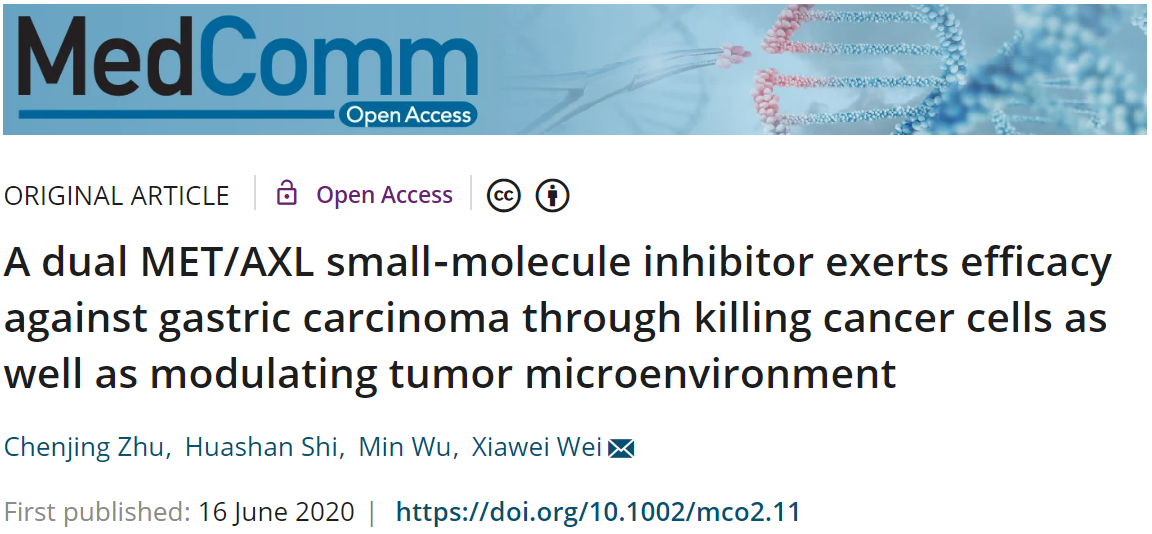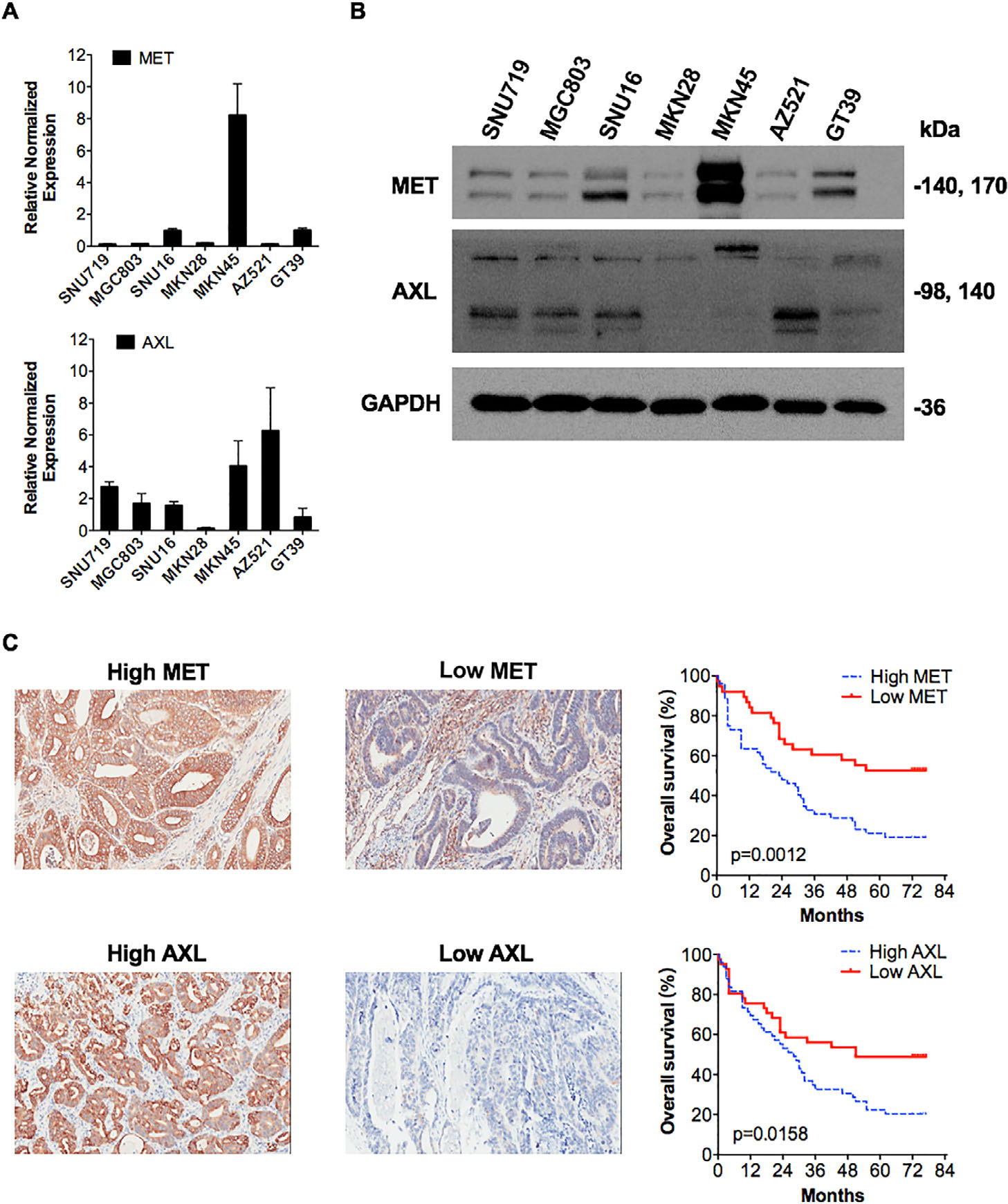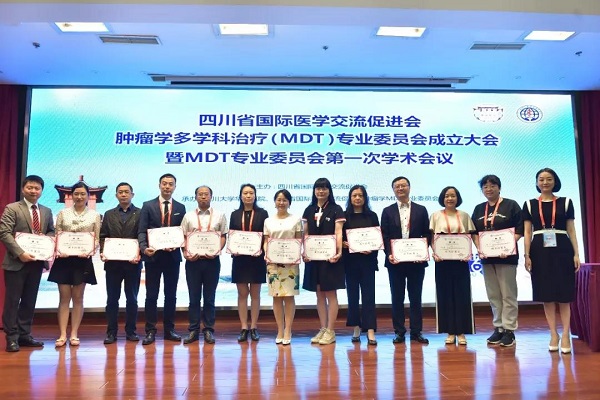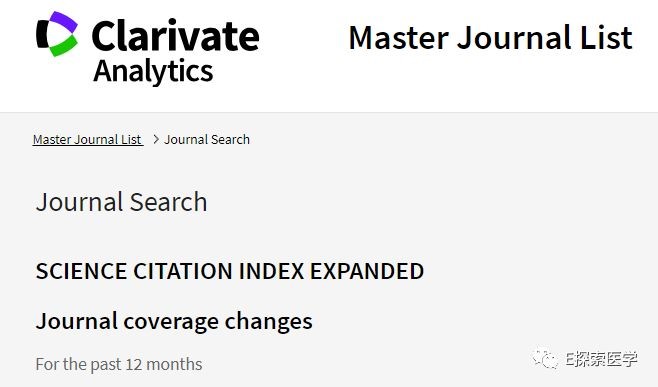There are two kinds of receptor tyrosine kinases --MET and AXL --which are intimately bound up with tumorigenesis and aggressiveness of multiple malignancies. However, the molecular mechanism of MET and AXL in both processes is yet not quite clear. In the present study, Chenjing Zhu et al evaluated the antitumor impact of LY2801653, a dual MET and AXL inhibitor on gastric cancer and to elucidate the underlying mechanisms.

The receptor tyrosine kinases MET and AXL have been implicated in tumorigenesis and aggressiveness of multiple malignancies. We performed this study to evaluate the antitumor impact of LY2801653, a dual MET and AXL inhibitor on gastric cancer and to elucidate the underlying mechanisms. In the present study, tissue microarrays containing gastric cancer tissues were stained with MET and AXL antibodies, which showed the prognostic values of MET and AXL. Administration of LY2801653 inhibited cell proliferation, migration, epithelial‐mesenchymal transition, induced apoptosis, and cell cycle arrest. Xenograft mouse models showed suppressed cell proliferation of tumors in high MET and AXL expression cells. LY2801653 also inhibited the growth of MET and AXL‐independent cells at higher but clinically relevant doses through decreased angiogenesis and M2 macrophages in the tumor microenvironment. In conclusion, our study provides evidence for MET and AXL as prognostic biomarkers and potential therapeutic targets in gastric cancer. The dual MET/AXL inhibitor LY2801653 represents a promising therapeutic strategy for the treatment of patients with gastric carcinoma.
 Fig. 1 MET and AXL expression in human gastric cancer cell lines and gastric cancer patients’ tumors.
Fig. 1 MET and AXL expression in human gastric cancer cell lines and gastric cancer patients’ tumors.
Article Access: https://onlinelibrary.wiley.com/doi/10.1002/mco2.11
Website for MedComm: https://onlinelibrary.wiley.com/journal/26882663
Looking forward to your contributions.






